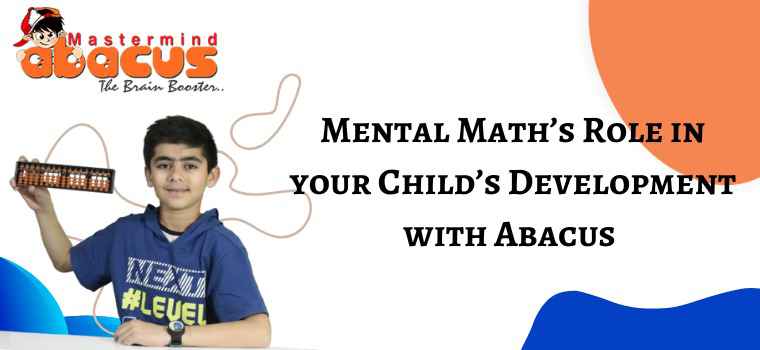
Developing Mental Math Skills A Guide for Parents
As parents, we all want the best for our children, especially when it comes to their education and cognitive development. One of the critical skills that often gets overlooked in early childhood education is mental math. Developing strong mental math skills in children can have far-reaching benefits beyond the classroom, impacting their ability to think critically, solve problems, and build confidence. But how can parents help foster these skills at home? Let's explore why mental math is essential for young learners and how you can support your child's development in this area.
The Power of Mental Math
Mental math involves performing calculations in one’s head without the use of a calculator or paper and pencil. This skill not only strengthens a child's numerical understanding but also enhances their memory, concentration, and problem-solving abilities. For young children, developing mental math skills can lay a solid foundation for future learning in mathematics and other subjects.
Consider the story of Vikash, a seven-year-old who struggled with basic arithmetic. Vikash often found herself falling behind in math class, and her self-esteem suffered as a result. Her parents decided to enroll her in an abacus learning program, and within a few months, Vikash’s ability to perform mental calculations improved significantly. Not only did her grades go up, but Vikash also began to enjoy math, often challenging herself to solve more complex problems mentally. This newfound confidence spread to other areas of her life, showing just how impactful mental math skills can be.
Benefits of Developing Mental Math Skills in Children
1. Enhanced Cognitive Development
Mental math encourages children to think critically and use their brainpower to solve problems. It stimulates brain activity, especially in the areas associated with memory and logic. This kind of cognitive exercise is crucial for developing young minds, as it helps them learn how to approach problems methodically and think through different solutions.
For example, children like Vikash, who learn to perform calculations mentally, often develop a better sense of numbers and their relationships. They learn to visualize problems and work through them logically, which is a valuable skill not only in math but in everyday life as well.
2. Improved Concentration and Memory
Performing math calculations mentally requires a great deal of focus and attention to detail. Children who practice mental math regularly often experience improvements in their concentration levels and memory retention. This is because mental math involves holding numbers and calculations in one’s mind, which strengthens working memory—the ability to hold and manipulate information over short periods.
Take the case of Arjun, a ten-year-old boy who found it difficult to concentrate on his homework. After his parents started incorporating simple mental math exercises into his daily routine, they noticed a significant improvement in his ability to focus on tasks. Arjun's memory also improved, which helped him excel not just in math, but in other subjects as well.
3. Boosted Confidence and Self-Esteem
Children who become proficient in mental math often feel a sense of accomplishment and pride in their abilities. This boost in confidence can positively affect their overall attitude toward learning and school. They begin to see themselves as capable learners, which is critical for their long-term educational success.
In Vikash’s case, mastering mental math gave her the confidence she needed to tackle more challenging problems and believe in her abilities. This newfound self-esteem was evident not just in math class but in all her academic pursuits.
How Parents Can Encourage Mental Math Skills at Home
As a parent, there are several ways you can help your child develop mental math skills at home. Here are some simple yet effective strategies:
1. Incorporate Math into Daily Activities
Make math a part of your child’s daily routine. You can ask them to calculate the total cost of items while grocery shopping or figure out the time left before a favorite TV show starts. These everyday scenarios provide a natural context for practicing mental math without making it feel like a chore.
2. Play Math Games
There are plenty of fun math games and apps designed to help children practice mental math skills. Games that involve quick calculations, number patterns, or math puzzles can make learning enjoyable and help reinforce these skills in a playful environment. Games like "Math Bingo" or "Number Line Jumper" can be particularly effective.
3. Use Visual Aids
Visual aids such as number lines, charts, or even an abacus can help children understand the concept of numbers and calculations better. The abacus, in particular, is a fantastic tool for developing mental math skills. It allows children to visualize numbers and perform calculations in a tactile and engaging way.
At Mastermind Abacus, we have seen firsthand how children can benefit from structured abacus learning programs. Our online abacus classes are designed to help children aged 6 to 12 develop strong mental math skills in a fun and interactive environment. Our expert instructors guide students through each step, ensuring they build confidence and proficiency in their math abilities.
4. Encourage Practice through Rewards
Children are more likely to engage in activities they find rewarding. Set small goals for mental math practice and offer rewards when your child meets them. This could be something as simple as extra playtime, a favorite treat, or a fun outing. Positive reinforcement can motivate your child to practice regularly and see mental math as a fun challenge rather than a daunting task.
5. Be Patient and Supportive
Learning new skills takes time, and children need encouragement and support from their parents. Celebrate their progress, no matter how small, and provide positive feedback to keep them motivated. Remember, the goal is to build a love for learning and boost their confidence in their abilities.
Conclusion
Developing mental math skills in children is about more than just improving their math grades; it's about fostering critical thinking, enhancing memory, and building confidence. By incorporating math into daily activities, using engaging tools like the abacus, and providing plenty of positive reinforcement, parents can help their children build these valuable skills.
If you’re looking for a structured and effective way to help your child develop mental math skills, consider enrolling them in an abacus learning program. At Mastermind Abacus, our online abacus classes offer a convenient, interactive, and fun way for children to learn. Our expert instructors and engaging curriculum are designed to help children thrive in math and beyond.
Help your child unlock their full potential with mental math skills that will serve them for a lifetime!





